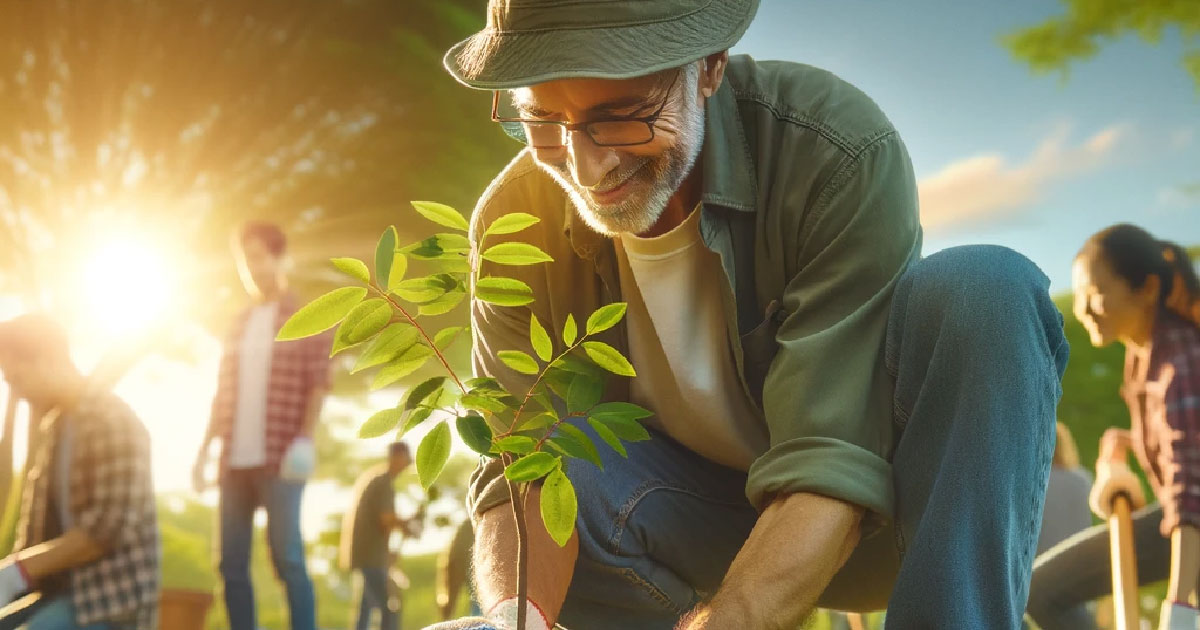Embarking on the journey of addiction recovery is a profound process of transformation and healing. One of the less discussed, yet incredibly beneficial, aspects of recovery is the role that volunteering can play in supporting this journey. Engaging in volunteer work offers individuals in recovery a unique set of advantages that can significantly enhance their path to wellness.
Helping others not only enhances the recovery journey but can also help you find meaning and purpose in your struggles. Let’s explore the myriad benefits of volunteering during addiction recovery and how it can serve as a powerful tool in rebuilding lives.
Fostering a Sense of Purpose and Self-Worth
One of the most challenging aspects of recovery is overcoming feelings of guilt, shame and low self-esteem. Volunteering provides an opportunity to step outside oneself and contribute to the well-being of others, which can instill a renewed sense of purpose and self-worth. The act of giving back to the community can remind individuals that they have valuable contributions to make, reinforcing their sense of value and boosting their self-esteem.
Building a Supportive Community
Isolation can be a significant barrier in the recovery process. Volunteering places individuals in environments where they can meet others with similar interests and values, fostering a sense of belonging and community. This social aspect of volunteering can be particularly therapeutic, offering a network of support and understanding that is crucial for sustained recovery.
Developing New Skills and Interests
Recovery is a time of self-discovery and growth. Through volunteering, individuals have the chance to explore new interests and develop new skills, which can be both empowering and rejuvenating. Whether it’s learning how to organize events, work in a team or develop communication skills, these new abilities can enhance personal development and even open up new career pathways.
Enhancing Mental Health
Engaging in volunteer work has been shown to have significant mental health benefits, including reduced symptoms of depression and anxiety. The positive social interactions, increased physical activity and the fulfillment that comes from helping others can all contribute to a more positive mood and outlook on life. This emotional uplift is invaluable for those in recovery, who may be struggling with the psychological aspects of addiction.
Promoting a Healthy Lifestyle
Volunteering often involves physical activity, whether it’s organizing a community clean-up, working in a community garden or participating in a fundraising walk. These activities can encourage a healthier lifestyle, providing a natural boost to physical well-being, which is an essential component of recovery. Furthermore, the structured routine of volunteer work can help individuals in recovery establish healthy habits and routines.
Aiding in Relapse Prevention
By providing a sense of purpose, community and a focus on positive activities, volunteering can play a crucial role in relapse prevention. It offers a constructive way to spend time, reduces feelings of boredom or loneliness that might trigger a relapse, and reinforces the individual’s commitment to a life of sobriety.
Restoring Faith in Humanity
Finally, volunteering can restore one’s faith in humanity. Seeing the good in others and experiencing the impact of collective efforts towards a common goal can be profoundly healing. It’s a reminder of the kindness and compassion that exists in the world, which can be particularly uplifting for those in recovery.
Volunteering Opportunities and Ideas
There are many ways to be of service in your community. You can pick one organization to volunteer with, or you can try your hats at various roles to see which one fits you best. Most organizations are flexible, making it easier to help others while still working your recovery program.
Here are some of the best opportunities and ideas to get started with:
- AA service work. Once you are more stable and confident in your recovery, you can help others on their path to sobriety. Consider sponsoring someone or taking a more active role in the meetings, such as by setting up, cleaning up and making coffee.
- Recovery coach/mentor. When you have substantial recovery time, you can become a volunteer recovery coach. This role requires you to model healthy lifestyle choices, give advice and companionship and address barriers to recovery.
- Animals. If you’re not yet secure around others, working with animals can be extremely rewarding. Animal shelters are often understaffed and overcrowded, so check with ones in your area. You can also consider walking animals for a vet or helping out with your neighbors’ pets.
- Seniors. Senior centers and senior living facilities may have a need for volunteers as well. Check for volunteer positions that revolve around food service and care and life enrichment.
- Food banks and soup kitchens. You can make a big impact on your community by helping out at a food bank or soup kitchen. Volunteer positions usually center around food prep and service (unloading/loading donations, serving meals) and administrative tasks (answering phones, reaching out to community members).
Enhance Your Recovery with Volunteer Work
Volunteering during addiction recovery is more than just an act of service; it’s a pathway to healing, self-discovery and renewal. It offers a bridge back to the community, an opportunity to rebuild self-esteem and a way to cultivate a fulfilling, sober life. For anyone on the journey of recovery, consider the transformative power of volunteering—not just for the communities you may help, but for the profound impact it can have on your own path to wellness.
To start your path to recovery, contact Pura Vida in Santa Rosa, CA today. We offer a full continuum of services that include detox, residential treatment and outpatient treatment. We will walk every step of the journey with you, including helping you transition back to the community for a life of purpose and meaning.





